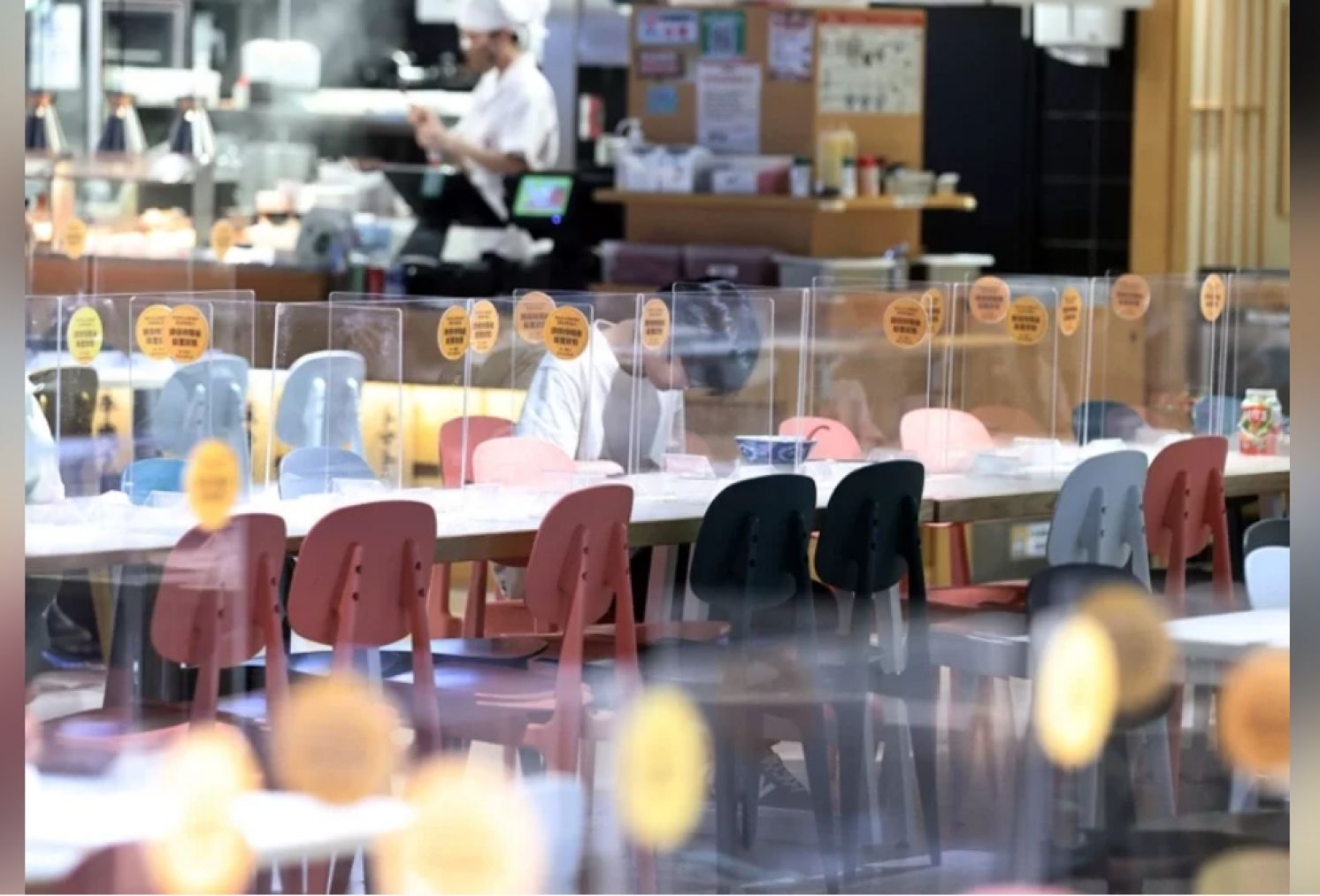
Abusive Spending After Messed Up Pandemic Response:Shouldn't the Tsai Administration Feel Ashamed?
United Daily News Editorial, May 28, 2022
On May 27, the Executive Yuan announced that the government will invest NT$34.5 billion (about US$1.1 billion) in helping the industries and workers affected by the coronavirus (COVID-19), a plan from which an estimated 900,000 people will benefit. While Taiwan has continued to emphasize that 99 percent of confirmed cases in the country are mild, and has maintained a second-level alert, the food, tourism, and transportation industries are facing a more severe business impact compared to that during the level-three alert last year. Taiwan has fallen into this languishment and chaos simply because the government made a rash turn in decision-making without ensuring that they were well-equipped with the essential epidemic prevention supplies beforehand. Nowadays, it is actually the people themselves that voluntarily live life as if they were on a Level 4 alert.
Most people can understand that coexistence with the virus is the only way to fully lift restrictions. However, how is it that the extent to which the people currently self-restrict is more stringent than during last year’s level three alert? The answer lies in the people’s lack of confidence in the authorities as the government lack of preparations have become evident. To coexist with the virus, a division of confirmed cases into severe and mild groups must start, and treatment should be given in accordance with the severity of symptoms–mild cases receive medicine to recover at home while hospitals must have enough space to accommodate those with moderate and severe symptoms and a well thought out medical referral system. As for the general public, they need to have affordable and easy access to rapid testing kits so as to go about living a normal life.
Each incident from the medical mayhem in the past two months has time and again degraded the faith people once had. In New Taipei and Keelung, the lengthy hospitalization process led to the loss of two kids after being diagnosed with COVID-19. They were only two years old. Another case in Keelung saw a patient with severe symptoms refused admission to a hospital. And a six-month-old baby died outside an emergency room because the hospital ran out of capacity. These tragedies repeatedly unraveled before the eyes of the public as a consequence of the government’s lack of a thorough policy planned in advance.
Furthermore, the government has set multiple limits on the distribution of antiviral drugs. An important note regarding effectiveness in such antiviral drugs is that they must be administered in the early stage of the disease to suppress the virus in mild cases. However, the government cherishes these drugs as if they were gold, which resulted in many patients not being able to get their hands on such medicine. This, coupled with the strict definition of what makes a confirmed diagnosis set by the Central Epidemic Command Center (CECC), people ended up only obtaining medication after four or five days since the onset of symptoms. This increased the chance of mild cases turning into moderate or severe ones. Unfortunately, the reason for such strict measures on drug prescription may be—in addition to the costly price—underbuying in their initial procurement. The rigorous standards for prescribing medicine for COVID-19 have led to patients missing out on the golden treatment period.
It’s not just antiviral drugs that patients are having a hard time obtaining. Even the Taiwan-manufactured Chinese medicine NRICM101, also known as Qingguan No. 1, for treating mild patients is out of stock. The Ministry of Health and Welfare (MOHW) claimed that NRICM101 has a production output at over 80,000 doses per month, but Legislator Kao Chia-yu revealed that since December last year, only 0.26 percent of COVID-19 patients received publicly-funded NRICM101. Even if people want to pay out-of-pocket for the medicine, it is still extremely difficult to come by. Not to mention the recent spike in daily confirmed local cases, with many days seeing more than 80,000 daily confirmed cases. Compared to the monthly NRICM101 production output, it is no wonder that the medicine is always out of stock. If the government had purchased a large amount of medicine at the beginning of the pandemic, would medicine supply still be so scarce today?
This ongoing chaotic scene since April resulted from the government's laxity. Recently, Netflix's Facebook page editor made a meme about people being unable to buy rapid-testing kits in Taiwan, which drew criticism from Netizens and allies of the ruling Democratic Progressive Party (DPP). Eventually, Netflix deleted the post and apologized. However, the dearth in basic pandemic prevention supplies has been present in the period when the government's pandemic prevention policy suddenly changed from elimination to co-existence. It is precisely because of the government's slow response that people can only choose to self-regulate—no outings, no dine-ins, no gatherings. This brought about a decrease in masses that made the Metro, rail, and bus service providers cut their schedule. It can be said that this sharp drop in domestic demand is not caused by the pandemic but by human error.
For the purpose of epidemic prevention and relief, the government has created a special budget of NT$840 billion (about US$28.9 billion), but only more than 10 percent of this is actually used for pandemic prevention. The remaining budget are mostly used for random subsidies. Today, the pandemic outbreak has forced consumption to stagnate and economic momentum to decline greatly, and the government rushed to pass more than NT$30 billion (about US$1 billion) to subsidize industries and the labor force as a gesture of mercy. There is nothing more absurd in the world than this! It seems that the only supply Taiwan has prepared enough for this pandemic surge is the Medigen vaccine. Given these incidents, can you still trust the government?